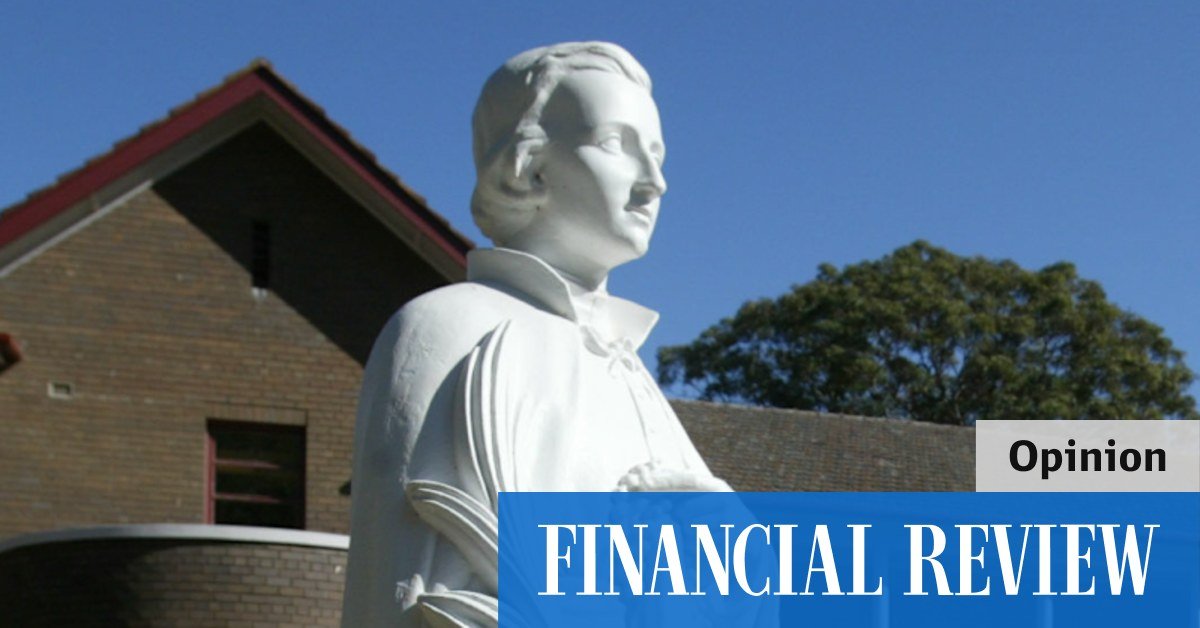Education
Millburn BOE Discusses AI in Classrooms, Grading Reforms and Facilities Upgrades – TAPinto

Education
Pvt schools bring in AI tools for better evaluation of students | Chennai News

Chennai: When Akansha (name changed) fumbled over a poorly worded maths question in her unit test, it wasn’t her teacher but an AI tool that came to her defence — flagging the flaw in the question and praising her for critical thinking instead of marking her wrong.“The software we are testing pointed out that though the student did not answer the question in a conventional sense, she possessed a critical-thinking ability that surpassed other students. It also pointed out that teachers should have framed the question better,” said Lakshmi Priya, principal, Prasan Vidya Mandir.Increasingly, private schools are purchasing tech and enterprise resource platforms to help teachers understand students’ mindsets better. Primarily set for elementary grades, up to Class V, these tools reduce the workload of teachers and help avoid bias creeping in during evaluation, Uma Kannan, owner, Sri Venkateshwara Institutions, said. “We experimented with a tool called AI Samrat in four of our schools. The improvements were very evident. Manually, it is difficult for teachers to understand where a student lacks if the class strength is high,” she added.Some schools started with a holistic progress card before transitioning into AI tools, which aligns with the vision outlined in the NEP. In this case, the answer sheets are manually corrected and uploaded onto the software. “The software then tells us ways to improve. Parents are also encouraged to provide their inputs for the holistic progress of a child,” said Radha Srikanth, principal, SV High, Arumbakkam.Chitra Ravi, founder of Chrysalis AI, a platform that provides such tools to schools, said there was a need for teachers to update themselves on the tech front to cater to students better. “AI constantly upgrades, and with time, we can even provide tech that can bring in a deeper assessment,” she added.Some schools, such as The Indian Public Schools, have also designed their own AI curriculum instead of purchasing software. Experts are appointed to train teachers in AI models that simplify lessons and draft assessments for students.“While the vision is to be appreciated, over-reliance on technology by teachers can eventually lead to them slacking off. There always has to be a human touch,” said Arumainathan, president, TN Students Parents Welfare Association.
Education
Integrating AI to Boost Engineering Education

In the rapidly evolving world of higher education, artificial intelligence is no longer a futuristic concept but a practical tool reshaping how professors teach and students learn. At the University of St. Thomas in Minnesota, mechanical engineering professor John Abraham has emerged as a vocal advocate for integrating AI into the classroom, viewing it not as a threat but as an enhancer of human potential. In a recent interview with FOX 9 Minneapolis-St. Paul, Abraham detailed how he incorporates AI in his courses, emphasizing its role in fostering deeper understanding rather than replacing traditional methods.
Abraham, who also researches climate science and thermal sciences, argues that AI can handle rote tasks, freeing students to focus on critical thinking and creativity. He described using AI for simulations in engineering problems, allowing students to experiment with complex models that would otherwise be time-consuming. This approach aligns with broader trends in education, where tools like ChatGPT are being harnessed to personalize learning experiences.
Embracing AI for Personalized Education
Recent discussions on social media platform X highlight a growing consensus among educators that AI can democratize access to tailored instruction. Posts from users like educators and tech enthusiasts note how AI analyzes student performance in real-time, identifying weaknesses and suggesting customized resources—much like Abraham’s methods at St. Thomas. For instance, one X thread from early 2025 praised AI’s ability to accelerate learning by providing instant feedback, echoing Abraham’s own classroom experiments.
Yet, this integration isn’t without challenges. Abraham acknowledges concerns about academic integrity, stressing the need for guidelines to prevent misuse. In his FOX 9 appearance, he shared how he designs assignments that require students to explain AI-generated outputs, turning potential shortcuts into opportunities for deeper analysis. This mirrors sentiments in a The Atlantic article from August 2025, which reported that nearly all incoming college freshmen are already using AI for homework, signaling a shift that institutions must address proactively.
Broader Implications for STEM Fields
Abraham’s work extends beyond the classroom; he’s co-authored a book on AI in heat transfer, as covered in a July 2025 University of St. Thomas Newsroom piece, demonstrating how AI revolutionizes thermal sciences by predicting outcomes in ways humans can’t match. He envisions AI preventing real-world disasters, like bridge collapses, through predictive modeling—a topic he explored in another St. Thomas study from earlier this year.
Industry insiders see this as part of a larger movement. A Chronicle of Higher Education report from September 2025 notes that most colleges lack comprehensive AI policies, leaving professors like Abraham to pioneer their own. On X, debates rage about AI’s potential to undermine traditional grading, with one viral post from June 2025 claiming it spells the “death of education” due to undetectable cheating, yet Abraham counters this by integrating AI ethically.
Navigating Ethical and Practical Hurdles
To mitigate risks, Abraham advocates for transparency. In his St. Thomas classes, students must disclose AI usage, fostering accountability. This stance is supported by insights from a St. John’s University event in October 2024, where experts discussed AI as a complement to, not a substitute for, human teaching.
Looking ahead, Abraham’s optimism is tempered by calls for broader preparation. A recent MPR News segment featuring St. Thomas colleague Thomas Feeney, published just hours ago on the University of St. Thomas Newsroom, emphasized understanding AI’s societal implications. As web searches reveal, schools nationwide are grappling with similar issues, from AI-driven plagiarism detection to emotional analysis in classrooms, as noted in Benzinga posts on X from September 2025.
Future Prospects and Institutional Adaptation
Ultimately, Abraham’s approach at St. Thomas could serve as a model for other institutions. By blending AI with hands-on engineering, he’s preparing students for a job market where AI proficiency is essential. Recent X discussions, including those from tech leaders like Arvind Narayanan in March 2025, suggest separating credentialing from learning to adapt to AI’s disruptions.
As education adapts, figures like Abraham remind us that AI’s true value lies in augmenting human ingenuity. With ongoing innovations, such as his work on AI for climate energy solutions detailed in a June 2025 WCCO Radio interview via the University of St. Thomas Newsroom, the professor is not just teaching about AI—he’s living its transformative power.
Education
What does AI use mean for students? How a liberal art college is fighting the AI cheating existential crisis

Assessments are to education what laws are to a virtuous life. A life of virtue, ordered to the good, incorporates but is much more than merely following laws. Education, as the growing in knowledge, understanding and wisdom, is much more than simply writing good essays and performing well in tests.
Assessment divorced from the pursuit of education is merely credentialing. However, an education without assessment can lack direction, motivation, and runs the risk of emptying education of academic substance and standards.
Loading…
-

 Business2 weeks ago
Business2 weeks agoThe Guardian view on Trump and the Fed: independence is no substitute for accountability | Editorial
-
Tools & Platforms1 month ago
Building Trust in Military AI Starts with Opening the Black Box – War on the Rocks
-

 Ethics & Policy2 months ago
Ethics & Policy2 months agoSDAIA Supports Saudi Arabia’s Leadership in Shaping Global AI Ethics, Policy, and Research – وكالة الأنباء السعودية
-

 Events & Conferences4 months ago
Events & Conferences4 months agoJourney to 1000 models: Scaling Instagram’s recommendation system
-

 Jobs & Careers2 months ago
Jobs & Careers2 months agoMumbai-based Perplexity Alternative Has 60k+ Users Without Funding
-

 Podcasts & Talks2 months ago
Podcasts & Talks2 months agoHappy 4th of July! 🎆 Made with Veo 3 in Gemini
-

 Education2 months ago
Education2 months agoVEX Robotics launches AI-powered classroom robotics system
-

 Education2 months ago
Education2 months agoMacron says UK and France have duty to tackle illegal migration ‘with humanity, solidarity and firmness’ – UK politics live | Politics
-

 Podcasts & Talks2 months ago
Podcasts & Talks2 months agoOpenAI 🤝 @teamganassi
-

 Funding & Business2 months ago
Funding & Business2 months agoKayak and Expedia race to build AI travel agents that turn social posts into itineraries

